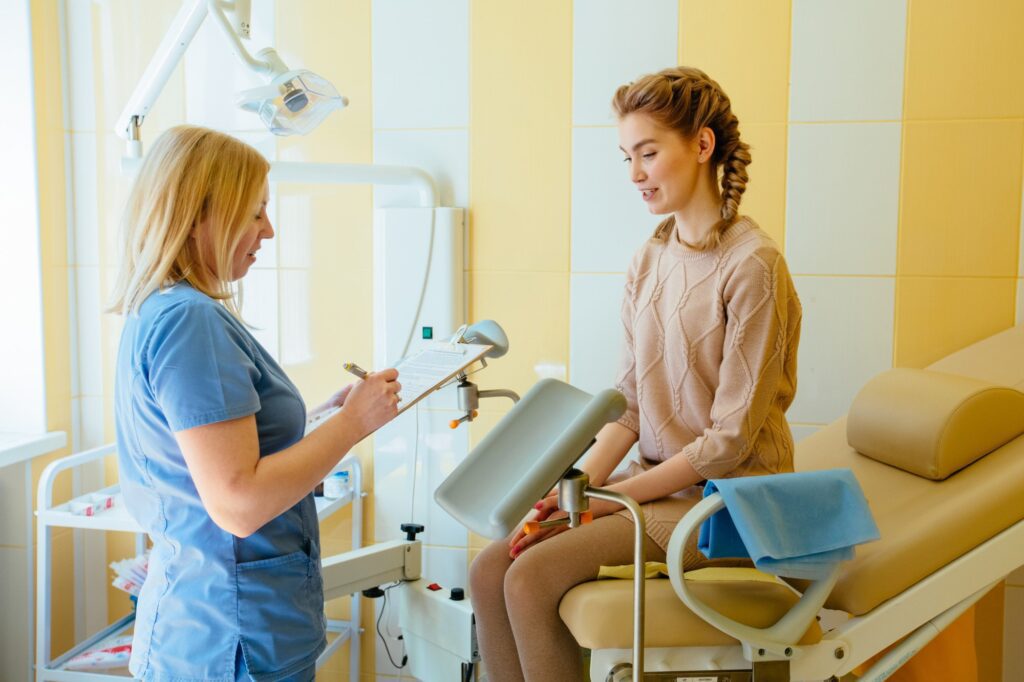Although cervical cancer is the fourth most common cancer worldwide, it’s also very preventable, treatable, and curable when you have regular pap smears.
However, the most crucial part of prevention is understanding more about the test and when you should be getting it. So, when do you get your first pap smear, and how often should you have them?
Once you learn more about pap smears, you’ll feel much less overwhelmed going for your first test.
Read on to learn everything you need to know about when to get your first pap smear.

Pap Smear Overview
First, it’s essential to learn more about pap tests, and what they involve. A pap smear or pap test is an important screening tool that tests for the presence of cancerous or precancerous cells in the cervix.
The cervix is at the opening of your uterus, and cells from this area are gently scraped off during the test. Your doctor will use a metal or plastic instrument known as a speculum to examine your vagina and cervix.
The cells are then examined in a lab for any abnormal growth or inflammation.
When Do You Get Your First Pap Smear?
Gynecologists recommend that you start getting pap smears at the age of 21, even if you’re not engaging in sexual activity. In some cases, you may need a pap test earlier for issues like:
- Not having a period by 15
- Not having a period after breast development begins
- Pelvic pain
- Vaginal discharge
If you’re not yet 30, then you can usually get screened every other year instead of each year. Women over 30 with at least three normal pap tests in a row can get tested every three years.
However, this can vary if you’re at higher risk for cervical cancer or have a condition that weakens your immune system. Your doctor will discuss any individual risk factors with you and form a plan.
What Happens Before and During a Pap Smear?
Before getting a pap smear, it’s best to find an experienced gynecologist you’re comfortable with, and who can care for you throughout your life stages.
Certain factors like sex within the last 24 hours and using vaginal creams or spermicidal foams can interfere with the test. Therefore, you should avoid this the day before your exam.
During the exam, your doctor will:
- Review your sexual and medical history
- Review your prescription medications
- Ask you to undress from the waist down
- Perform a pap smear by gently removing cells
Most of the time you’ll also get a pelvic exam to check the health of your reproductive organs. Depending on your history, your doctor may also recommend STD and HPV testing.
Schedule Your First Pap Smear Today
Now that you know the answer to the question, “When do you get your first pap smear,” you won’t unintentionally delay your first pap smear.
If you’re looking for a gynecologist in the Boise, Idaho area, you can turn to Women’s Health Associates for all your needs. We provide a wide range of gynecologic services like annual checkups, pap smears, contraceptive counseling, breast health, sexual care, and more.
Our compassionate team is ready to work with you during all stages of your life. Make sure to contact us today to schedule your first gynecology visit.

